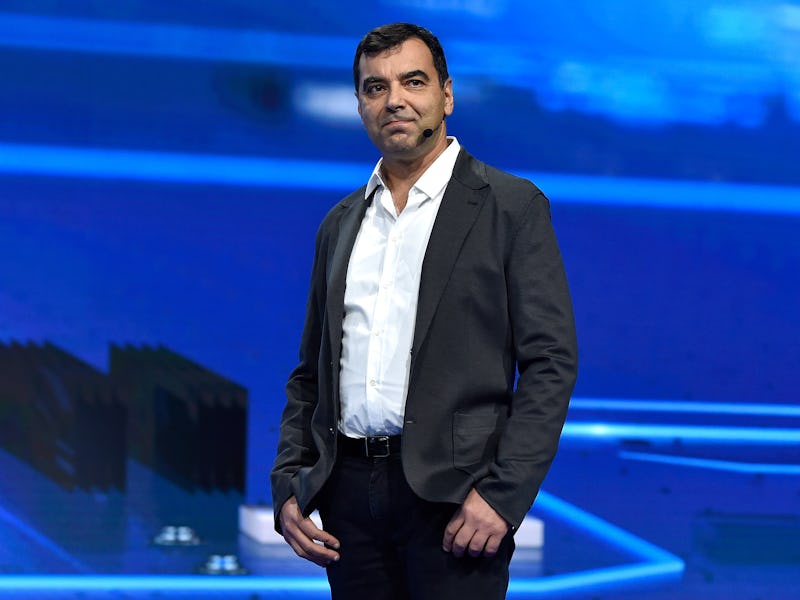Mobileye Just Blew Up and Elon Musk Should Be Nervous

Elon Musk has some serious competition — and it’s from a company he turned his back on last year. Mobileye, the computer vision company that used to supply Tesla’s Autopilot feature, is growing into a juggernaut of the nascent self-driving car sector in its own right. In the past month alone, the company signed contracts with BMW and Volkswagen, and on Wednesday, its stock price shot up by two percent after an impressive set of quarterly financial results.
“The fourth quarter marked a strong finish to 2016, which resulted in our ability to exceed revenue and profitability expectations for the full year,” Mobileye co-founder Ziv Aviram said in a statement. The company’s quarterly revenue rose a staggering 45.6 percent year-over-year, and it now has $49 million more in cash than it did this time last year.
Mobileye also signed two big deals this month. The first, with Volkswagen, will install the company’s mapping systems in the automaker’s cars by 2018. There’s no self-driving involved, but Mobileye’s technology will capture maps as Volkswagen’s cars drive down the street, uploading it to the cloud. Volkswagen can then collaborate with other car makers to later use these maps for self-driving cars. And on Tuesday, BMW announced a similar deal with the company, also to put Mobileye’s mapping hardware and software in all of its 2018 models. This collaborative approach is an advantage Tesla is going to lack going forward.
This wasn’t the way it was meant to be. Mobileye used to supply its EyeQ computer vision units to Tesla for use in the automaker’s Autopilot system. When Tesla and Mobileye parted ways in July last year, it was because the two had totally different ideas about how the autonomous car was going to pan out. Tesla wants to develop the existing Autopilot system that drives the car along highways into a fully autonomous product, with software updates increasing the autonomy of its cars already on the road. Mobileye, on the other hand, wants to develop its system into a product for several car makers and release it when it’s ready.
The Mobileye - Tesla split was an amicable divorce until things turned sour. First, a report produced by the National Transportation Safety Board looking into a Tesla Model S crash that occurred in May found the driver had Autopilot enabled at the time of the crash. In September, Mobileye’s Chief Technology Officer Amnon Shashua lashed out at Tesla, saying that Elon Musk’s company was “pushing the envelope in terms of safety,” and that its attitude could ultimately hurt the industry. The aversion to Tesla’s public “beta testing” of semi-autonomous systems is shared by many in the industry, including Ford CEO Mark Fields, who said that injuries or deaths resulting from half-finished autonomous systems were his biggest fear for self-driving cars.
“The thing that keeps me up most is that one of our competitors tries to go out there early and there’s a death or an accident,” Fields said. “Because that will just solidify in people’s minds that autonomous vehicles are not ready for prime time.”
Tesla, meanwhile, claimed its switch from Mobileye’s computer vision to a radar-based system had made the cars a lot safer, and that vehicles with the latest Autopilot would be three times safer than human-driven cars. The thinking is that semi-autonomous systems can improve safety for human drivers, although critics say features like Autopilot can give drivers a false sense of security behind the wheel, despite being statistically safer.
For a while, it seemed like Tesla’s idea was the winning formula. The existing Autopilot collects data that can aid the development of the fully autonomous system. In October, the company started shipping cars with the necessary sensors to support the upcoming feature, and Musk stated that his goal was to release an update for these cars to enable full autonomy by the end of 2017. That’s years sooner than anyone else. In November, Tesla released a video showing the beta version in action:
Then in December, it started looking like Mobileye was onto something all along. The company released a video of an Audi driving around unaided. At the 2017 Consumer Electronics Show in January, the company took to the stage with British car part maker Delphi to showcase the Centralized Sensing Localization and Planning self-driving car system. Mobileye said the device could be ready for production by 2019. Soon after, BMW and Volkswagen announced their partnerships.
It’s starting to look like Tesla has few other companies that believe in its plan. Toyota Research Institute chief executive Gill Pratt said earlier this year that fully autonomous cars are “not even close” to launch.
It’s still too early to tell which company will emerge as the leader in autonomous cars, but Mobileye’s industry support and wealth of data means it’s well placed to give Tesla a run for its money.